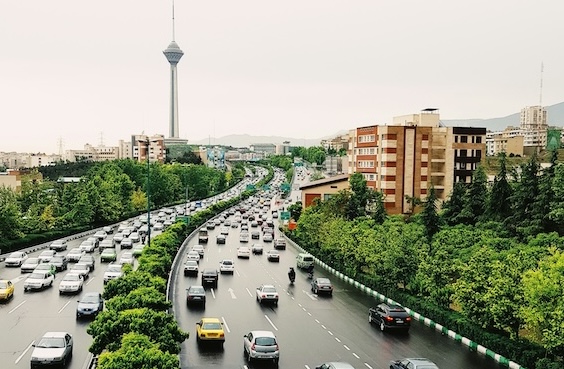( RFE/ RL) – After 12 days of unprecedented direct hostilities, Israel and Iran have agreed to a cease-fire that has brought a tense and uneasy calm to the region.
The war, marked by devastating air strikes, missile barrages, and covert operations, has left both countries reeling. While the immediate fighting has stopped, the political, military, and nuclear implications of this brief but intense war are only beginning to unfold.
Both countries have rushed to claim success, with the Israelis insisting they accomplished their goals and the Iranians claiming to have “imposed” the cease-fire on their archfoe.
Yet beneath the official statements, analysts warn that the cease-fire is fragile, the strategic balance has shifted, and the risk of renewed conflict or dangerous escalation remains high.
Israel’s Gains, And A Critical Omission
Israel’s government declared it had “achieved all the objectives of Operation Rising Lion,” citing the reported destruction of key Iranian nuclear and missile sites, the elimination of senior military leaders, and air superiority over Tehran.
“Israel was able to strike key military strategic governmental targets quite effectively,” Farzan Sabet, a managing researcher at the Geneva Graduate Institute, told RFE/RL.
He said the conflict highlighted the extent of the Israeli infiltration of Iran’s security apparatus, adding the country’s intelligence agency Mossad “was able to basically create a legion of defectors who were probably one of the elements in this war that caused the greatest damage.”
Butm despite Israeli and US bombings, Iran’s nuclear program, while damaged, is not completely dismantled — some enrichment capacity and expertise survived, and the risk of a covert Iranian nuclear breakout remains.
Nuclear nonproliferation expert and a senior fellow at the Brookings Institution Robert Einhorn noted that more than 400 kilograms of Iran’s uranium stockpile enriched to 60 percent purity had been moved and had not been accounted for.
“Conceivably, if under Iran’s possession, [the stockpile] could be taken to some secret location and used in a nuclear weapons program,” Einhorn told RFE/RL.
Iran’s Weakened Position And Shattered Prestige
Iran’s leadership survived, but at a steep price. Its nuclear, missile, and drone arsenals were severely degraded; much of its senior military leadership was killed; its air defenses failed to protect the country from deep Israeli strikes; and the Islamic republic finds itself politically weakened.
Sabet called it “a catastrophe for Iran,” while Einhorn said, “Iran is weaker and more internationally isolated than it was two weeks ago.”
The Islamic republic’s claim as a guarantor of national security, a key pillar of its legitimacy, has been badly damaged given its inability to stave off Israeli air attacks and protect its military leadership, which was mostly eliminated on the first day of war.
“It’s a massive blow to the prestige of [the Islamic republic],” Sabet said.
The Nuclear Dilemma: Deterrence Or Restraint?
The war’s most dangerous legacy may be the incentive it gives Iran to pursue nuclear weapons. Iran has previously said that, while it does not seek nuclear weapons, it will reconsider its doctrine if it faces an existential threat.
The war sends mixed signals to Iran’s leadership. Some Iranian factions may see the attacks as a warning not to cross the nuclear threshold. But with its deterrent eroded, others may view nuclear arms as the only reliable guarantee of the Iranian establishment’s survival.
“The pursuit of a nuclear weapons capability can be very, very risky for the country,” Einhorn said. “There will be hard-liners in Iran who will decide that the only way of deterring foreign attacks…is acquiring nuclear weapons. And it’s not clear at this stage which of those groups will prevail.”
But Sabet is skeptical of Iran’s technical and organizational capacity to pull off a covert nuclear breakout, not least because of how compromised it is.
“I wouldn’t put much trust with a system as thoroughly infiltrated and unreliable and incompetent as the Islamic republic,” he said, adding that if Iran were to conduct a nuclear test, “we could see nuclear escalation against Iran, which I think is highly dangerous.”
A Fragile Pause, But Not A Lasting Peace
The cease-fire has brought a tenuous pause to the fighting. Israel can claim a military victory, but the political and strategic endgame remains unsettled.

Photo of Tehran by Mehrshad Rajabi on Unsplash
The Islamic republic is battered and its deterrence eroded, but it survives — at least for now.
Israel may have won the battle, but the war’s core dilemmas — nuclear risk, regional instability, and mutual mistrust — remain unresolved.
According to Einhorn, only diplomatic efforts can ensure that Iran’s nuclear material is truly accounted for and that the region steps back from the brink.
“The missing 400 kilograms of highly enriched uranium…could become the basis of a covert nuclear weapons program,” he said. “And this element cannot be dealt with by a military attack. It can only be dealt with through diplomacy.”


 © 2026 All Rights Reserved
© 2026 All Rights Reserved